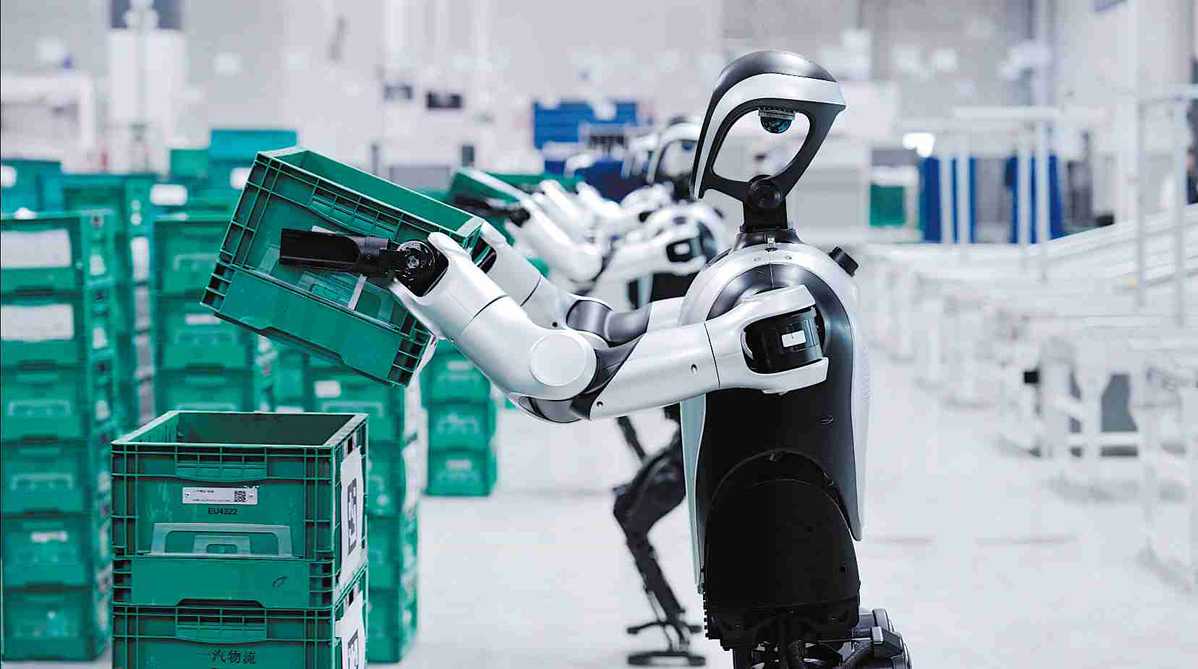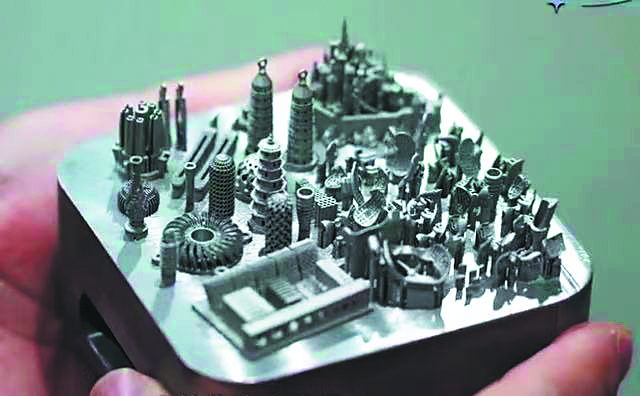
At the heart of China's Yangtze River Delta region, there is a place where the elegance of a traditional water town coexists with the pulse of cutting-edge innovation.
In Wujiang district of Suzhou, Jiangsu province, one can stroll along ancient canals flanked by white-walled houses and arched stone bridges before enjoying an "afternoon tea party" with an advanced humanoid robot in a Suzhou garden, using a sophisticated 3D printed tea set and wearing a UV-protective jacket that are all innovatively developed by local tech heavyweights.
This unlikely fusion of heritage and high tech is just one striking example of how technological ingenuity can quietly reshape the future.
Inside ZRapid Tech's 3D printing technology factory, an intricate model of a miniature city is on display as a showcase of what's possible with advanced metal 3D printing.
"Some parts of the model's finest parts are just 0.1 mm, barely visible to the human eye or camera, yet fully formed with 3D printing," said Xing Zhanwen, the company's deputy general manager. "Our printing precision now reaches 0.02 mm, finer than a strand of hair, leading the industry in this field."
Besides the sophisticated metal printing technology, ZRapid Tech has also achieved another milestone in resin 3D printing, and it is all developed in-house.
"We've created one of the world's fastest and largest 3D photopolymerization printing systems, capable of producing objects up to 2.7 meters in size," Xing said, adding that the technology is already being applied in home appliances, high-speed railways, construction and other sectors.

With more than 150 patents and a complete industrial chain covering materials from polymers to metals and ceramics, the Wujiang-based tech company has spent the past 14 years leading the field in additive manufacturing.
Xing attributed the company's continued innovation to its R&D-driven approach, with nearly 40 percent of its staff engaged in R&D and related expenses accounting for 13 percent of annual revenue.
"Wujiang's location in the heart of the Yangtze River Delta region gives us easy access to talent, capital and application scenarios. It's a natural fit for the expansion of high-end manufacturing like 3D printing," Xing said.
With a population of over 1.5 million, Wujiang is now home to more than 100,000 private enterprises, including two that have broken into the Fortune Global 500.
As Wujiang's innovation ecosystem continues to evolve, it is now home to 77 national-level "little giant" tech enterprises specializing in niche and advanced technologies. According to government data, the district's total R&D expenditure was estimated to account for about 4.15 percent of its GDP last year.
Wujiang's spirit of innovation extends beyond 3D printing. Following robot technology company Leju Robot's launch of its first humanoid robot production line in Wujiang late last year, the first of its kind in Jiangsu, the company said it plans to continue developing and manufacturing its flagship robots in the district, with full capacity expected within five years.
Once scaled, the line is expected to generate an annual output value of 300 million yuan ($41.73 million).
Among China's first batch of open-source HarmonyOS-based humanoid robots capable of traversing complex terrain, Leju's KUAVO series is able to realize intelligent deployment across diverse real-world scenarios.
With the successful delivery of its 100th full-size humanoid robot this January, Leju now leads the world in both quantity and diversity of real-world humanoid robot deployments. In addition, its KUAVO robots are also operating stably on factory lines such as at Chinese car brand Hongqi, further bridging the gap between robotics R&D and industrial application.
According to Xu Tianshu, a professor at Suzhou University of Science and Technology's business school, private enterprises are key players in driving innovation, and those of different sizes play varying roles along the industrial chain.
"While large firms often take the lead in breakthrough innovation, smaller and medium-sized ones can focus on their core strengths and contribute essential specialization and support services to major enterprises, large-scale projects and entire industrial chains," Xu said.
However, he also stressed that private businesses, given their vast number and scale, are most concerned about being treated equally in economic policy and market practice.

